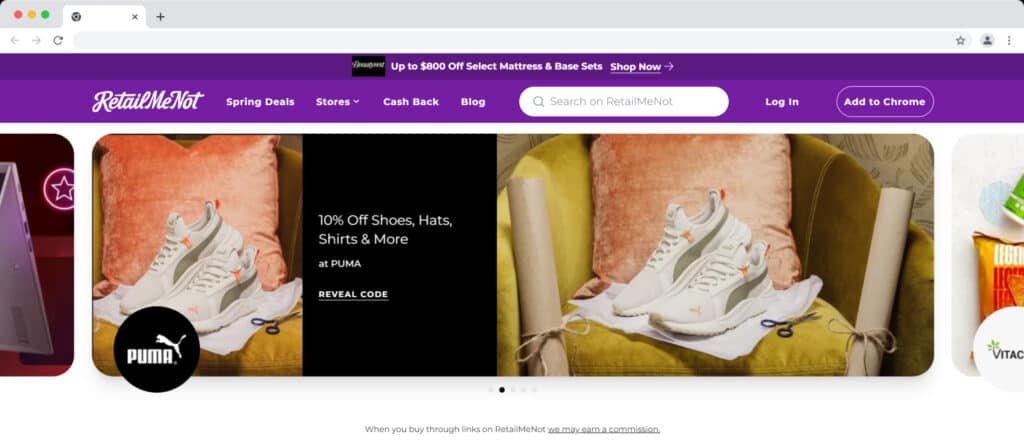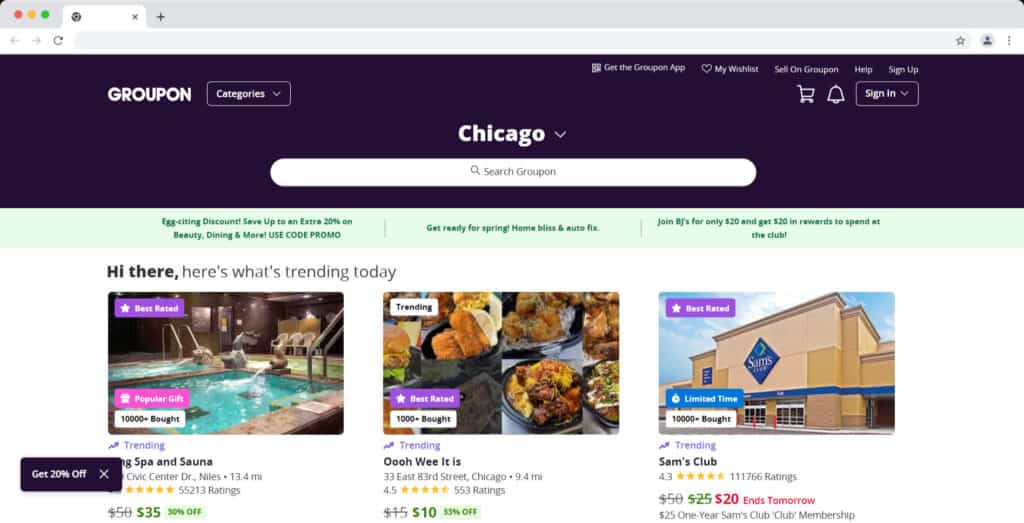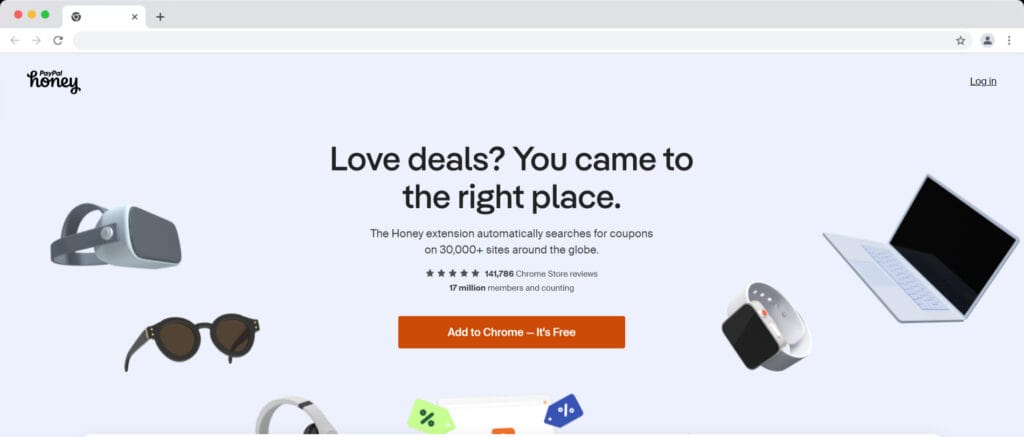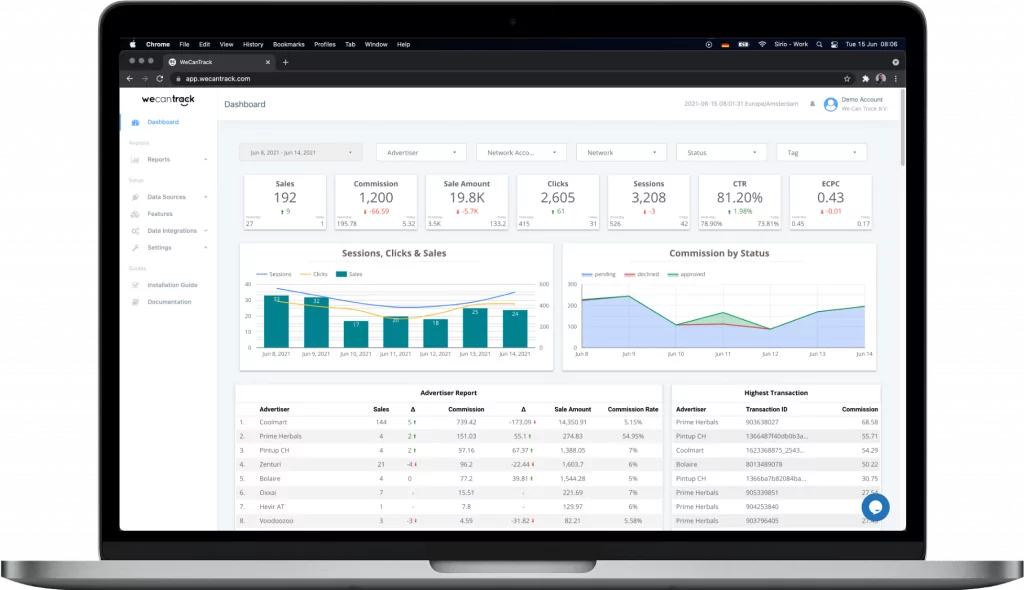Coupon websites are a great way for businesses to attract new customers and increase sales. They are also a great way for affiliate marketers to earn a passive income, as long as you know how to start, build, and optimize your coupon site.
If you’re new to affiliate marketing you can also have a look at our article on how to start in affiliate marketing.
In this article, we will outline the steps in setting up a successful coupon website, explain the benefits of integrating affiliate marketing with your coupon website, and best practices for creating effective campaigns.
How to Start a Coupon Website Overview
Understanding Coupon Websites
A coupon website is dedicated to posting coupons, discount vouchers, codes, and other discounts. These discounts are redeemable on another website. The coupon website simply lists a variety of coupons and codes but doesn’t sell the actual stuff.
Visitors to a coupon website usually get access to vouchers and codes in exchange for their personal information, but this doesn’t have to be the case.
This is because the monetization of a coupon website is handing out coupons. It’s in the best interest of the website’s owner to hand out as many vouchers as possible.
Why Is A Coupon Website Interesting For Affiliates?
As you know, affiliate marketing is all about earning a passive income. The idea is that, as an affiliate marketer, you attract an audience to your website. Tracking your audience, if and when they purchase a site you’re promoting, is therefore essential.
Visitors to your website usually copy or download a code that can be redeemed at the site you’re promoting, which makes every purchase that originated with your audience traceable via an affiliate network.
What’s more, the audience for coupons is very far in the customer journey. These are usually people who are already ready to make a purchase but are now searching for the best deal.
They usually need a little nudge to buy, which is good news for your conversion rates.
The same principle makes these websites attractive to the affiliate partners that you will be promoting. Webshops and other businesses that sell their products online usually want to be featured, which means they will be showcased to a trigger-happy audience.

To boost user interaction with coupons, consider creating 'how-to' guides, showcasing user-generated content, and offering limited-time deals. These strategies not only drive engagement but also create a sense of urgency that prompts users to act on the coupons.
Setting Up A Coupon Website
The first step in setting up a successful coupon website is to research the market and identify your target audience. This will help you understand:
- What type of coupons and promotions will be most appealing to your target audience
- How to best reach them (social media campaigns leading back to your website, for example)
- What message is going to catch their attention
- Which content (videos, helpful tips) you could create to share on social media to build on the audience
- The problems your audience is trying to solve, so you can write how-to articles and posts answering these questions and attract them via SEO
Once you have a clear understanding of your target audience, you can begin creating your website.
To create your website, you will need:
- A domain name (the “address” for your website)
- Hosting (where your website and the associated data will live)
- Platform (also known as a content management system, or CMS)
- Optional: If you choose WordPress, purchase a WordPress theme for affiliate marketing websites.
Several different platforms are available, such as WordPress, Shopify, and Magento. Each platform has advantages and disadvantages, so choosing one that best suits your needs is essential.
Once your website is set up, you can create content and promote your coupons and promotions.
Examples Of Successful Coupon Websites
Here are some examples of successful coupon websites across different industries, to help you get a better understanding of what you’re working towards:
RetailMeNot.com (Retail)
This website provides coupons and deals for a wide range of retailers. They use affiliate marketing as their top monetization method, earning commissions from sales made through their product links.
RetailMeNot has a long and colorful history as a prominent and leading coupon website.
In 2010, WhaleShark Media acquired RetailMeNot for an undisclosed amount and rebranded the entire company to RetailMeNot before going public on the Nasdaq in 2013, raising $191 million in its initial public offering.
In 2017, Harland Clarke Holdings (HCH) acquired RetailMeNot for $630 million in equity – HCH rebranded itself as Vericast in February 2020.
Vericast sold RetailMeNot in September 2020 to J2 Global for a reported $420 million. On August 17, 2021, J2 Global announced it would change its name to Ziff Davis, the current owner of RetailMeNot.
According to Similarweb, RetailMeNot.com gets more than 20 million monthly visits.
Groupon.com (Local deals)
This website provides deals on local activities, products, and services.
Groupon has over one million merchants who use Groupon to find new customers, expand their brand awareness, and boost profits with no upfront costs.
Businesses across the city quickly caught on. Soon Groupon started expanding to other cities, and by the end of 2009, Groupon was active in 28 cities across the U.S.
By the following year, in 2010, Groupon reached other countries, including Germany, France, Italy, Spain, the United Kingdom, Switzerland, and Belgium.
On June 2, 2011, Groupon filed to go public. The company went public on November 4, 2011 (Nasdaq: GRPN). It was the biggest IPO by an Internet company since Google in 2004, with a market cap of $17.8 billion.
However, Groupon has had a bumpy ride, falling short of expectations that could justify a multi-billion dollar market cap. And at the time of writing this, Groupon’s market cap is a mere $148 million.
In 2012, Groupon offered merchants the opportunity to sell on Groupon by providing them with the necessary tools and resources.
According to Similarweb, Groupon.com gets roughly 25.8 million monthly visits.
Honey (eCommerce)
This browser extension provides coupons and deals for online shoppers.
"Honey has helped more than 17 million people find more than $1 billion in available savings, and a big part of that success comes from the relationship we have with our members."
PayPal Honey (or Honey as it’s still referred to) was founded in 2012 by Ryan Hudson and George Ruan, and by 2014 the company had more than 900,000 users.
The company raised $26 million in funding in March 2017. And by January 2018, it had secured $40.8 million.
PayPal announced on November 20, 2019, that it acquired Honey Science Corporation for approximately $4 billion, and it completed the acquisition on January 6, 2020.
"The addition of Honey to our platform enables a significant step forward in our commitment to provide powerful services and tools for merchants and consumers, move beyond our core checkout proposition and significantly enhance the shopping experience for our 300 million consumers and merchants."
Dan Schulman, president and CEO of PayPal
These coupon websites are successful because they provide a valuable service to their target audience by making it easy to find deals and discounts on products and services their audience seeks.
They also have a clear monetization strategy and use SEO and social media marketing tactics to drive traffic to their site. By studying these examples, you can understand what a successful coupon website looks like and learn from their strategies.
5 Steps For Skyrocketing Your Coupon Website
Once you’ve got the technical details out of the way and your coupon website is in the air, it’s time to get the ball rolling. This means ensuring the coupon infrastructure is in place and building up a scalable ecosystem.
Here are five steps that will help you to build your site for success.
How To Find Coupon Codes
Coupon websites that generate coupons typically have partnerships with various brands and generate exclusive discount codes for their users.
These codes are often unique and can only be found on the coupon website. Users can then use the coupon code during checkout to receive a discount on their purchases.
Other coupon websites search for coupons on partner websites and list them all in one place for users to find easily.
These websites often have partnerships with many different brands and affiliate networks, making it easy for users to find a variety of discounts and offers in one place.
Finally, some coupon websites allow users to submit their coupons. Users can share their discount codes, deals, or offers with the coupon website, which then verifies the code and adds it to their list of available coupons. This allows users to help each other save money and discover new deals.

Integrating Affiliate Marketing
Integrating affiliate marketing with your coupon website can be a great way to increase revenue and drive traffic to your site.
As you know, affiliate marketing involves partnering with other businesses to promote their products or services in exchange for a commission. And this can work both ways.
The most obvious way to leverage affiliate marketing to boost your coupon website is by partnering up with businesses that are already leveraging affiliate marketing.
To set up affiliate partnerships, you can join an affiliate network or contact businesses directly.
Once you have established partnerships, you can begin promoting affiliate products on your coupon website as you would with any other affiliate website.
Only instead of promoting your partner’s products or services by linking to them, you will promote a coupon code offering a special discount and urge people to use that code when they’re purchasing so that your partner will know that you sent them.
Get Affiliates To Promote For You
You could also set up an affiliate marketing campaign to promote your website and the products you’re offering: discount codes and actions.
Flash sale websites such as LatestDeals have built a strong brand around having the latest and best sales and offers. And as long as you have a coupon website with something valuable to offer, you could work with influencers.
An influencer with the right kind of audience might be an excellent affiliate partner to reach new people and grow your audience.
You might for example agree on a fee based on the number of people that sign up for your mailing list via the influencer, or even on the number of coupon downloads they provided for you.
To set up a referral program, you can use a plugin or software that allows you to track and reward affiliates. This can be an effective way to build long-term relationships with affiliates and increase revenue over time.
Driving Traffic And Optimizing Conversions
Driving traffic to your coupon website is essential for its success. Several tactics can be used to drive traffic, including SEO and social media marketing.
SEO, or search engine optimization, involves optimizing your website for search engines, such as Google and Bing. This can be done by creating engaging and informative content, using keywords, and building backlinks.
Social media marketing, on the other hand, involves promoting your website on social media platforms, such as Facebook, Twitter, and Instagram.
This can be done by creating engaging content, running ads, and building a following. We wrote a guide on affiliate marketing on instagram that you can have a look at and take some inspiration from.
We’ve already discussed how influencers could drive traffic to your website. However, since it’s such a powerful way to reach a big audience quickly, we’ve put this traffic source here again.
Getting traffic is just the first part, however. Visitors alone won’t pay your bills; you need to convert those visitors. In other words, get them to take a specific action valuable to you, like subscribing to your mailing list or downloading a coupon code.
Additionally, ensuring that your website loads quickly and is optimized for mobile devices is essential.

Affiliate Conversion Tracking For Coupons Websites
Conversion tracking and attribution for affiliate marketing efforts on coupon websites are a crucial step to set up your coupon website properly.
With advanced tracking and attribution features, businesses can dive deep into their data to understand which coupons generate revenue, which traffic sources are the most profitable, and more.
One way to achieve this is through affiliate conversion tracking and attribution provided by third-party services like wecantrack.
This is done by automatically tracking every time a user clicks on one of the affiliate links or uses a coupon code on the website.
A unique click ID is placed every time a click or coupon usage happens. With that ID, once the sale is fetched from the affiliate network, the system can automatically attribute and track the sale to the correct session and user.
The affiliate conversion data can then be integrated into various tools such as Google Analytics, Google Ads, and Facebook Ads.
Furthermore, you can use this data to optimize your affiliate marketing campaigns by testing different coupon formats, layouts, and creatives to know the most converting. This can help you to get even more revenue from the same traffic.
Final Thoughts
Starting a coupon website can be a great way for businesses to attract new customers and increase sales, or for affiliate marketers to earn an income.
Remember, it’s important to research the market and identify your target audience, have a clear monetization strategy, and use tactics such as SEO, social media marketing and affiliate marketing to drive traffic to your site.
Follow the outlined steps and embrace the versatile nature of coupons!







